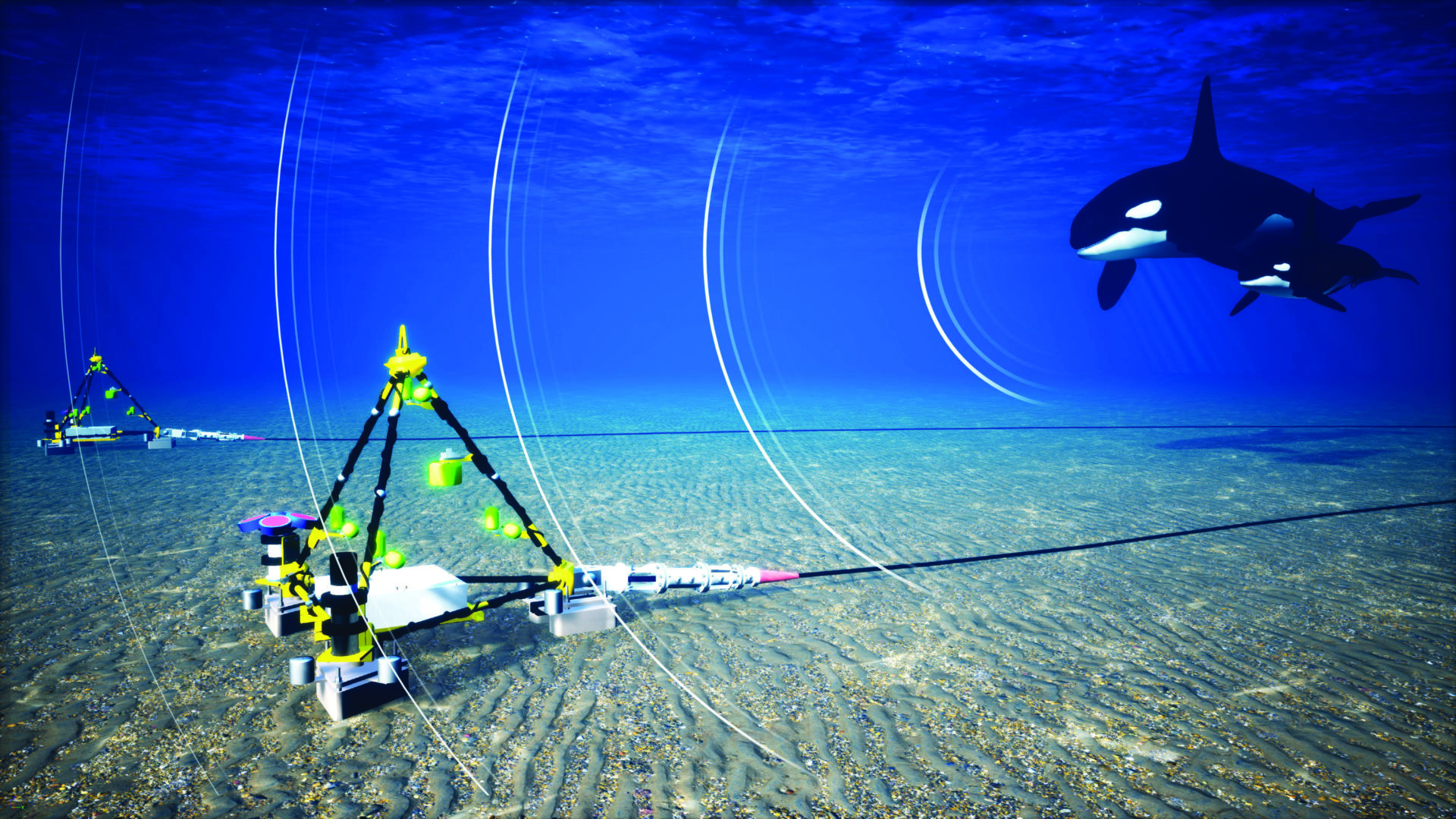It’s long been suspected that the noise from large ships and other water craft disturb orcas, who use echolocation to communicate and forage. Marine traffic noise may well be a contributing factor to the decline of the southern resident orcas. Only 74 individuals remain. To learn more about how underwater noise can be a cause of the decreased orca numbers, a temporary listening station was established in 2018 in Boundary Pass, the busy thoroughfare with thousands of ships crossing year-round to and from Vancouver and other ports. Now, a new $9.5-million station funded under Transport Canada’s five-year Whales Initiative and manufactured by JASCO Applied Sciences (a Halifax-based company specializing in mitigating underwater noise), will build upon the previous research. The longer-term goal is to develop ways to reduce ships’ noise in the region and to give mariners information on avoiding orca pods as they travel through BC’s waters.
The new station includes two pyramid-like frames each carrying eight underwater microphones. These hydrophones are located between the inbound and outbound shipping lanes off Saturna Island—190 metres below the surface. It’s one of the locations that orcas frequently congregate and search for food. The observation station will record the noise emitted by ship engines as well as document the number, direction and behaviour of passing orcas. Each day, 2.8 kilometre-long fibreoptic cables deliver more than a terabyte of acoustic data to a Saturna listening post; the data can be observed in real time.
According to JASCO’s chief science officer, David Hannay, the hydrophone array “has produced the largest ship noise database in the world… extremely important for understanding underwater noise emissions and supporting the development of ‘quiet ship’ limits—a process involving international ship certification societies.” Hannay says, “the goal is to reduce ship noise globally, benefitting southern resident killer whales and all species of the world’s oceans.”
An additional aid to avoiding travelling cetaceans is the newly established Marine Mammal Desk, hosted by the Coast Guard’s Marine Communications and Traffic Services Centre in Sidney. It’s the only such station in Canada. Staffed 24/7, the Coast Guard states that the desk “will report whale sightings in real time and advise vessel traffic by providing enhanced situational awareness of the activities of southern resident killer whales and other cetaceans, such as humpback and grey whales.” The centre also provides backup for the Marine Mammal Reporting Hotline, which handles entangled, injured or dead marine mammals. Ships, recreational boaters and the public sighting orca pods and other whales can call the desk at 1-833-339-1020; the hotline can be reached at 1-800-465-4436.
